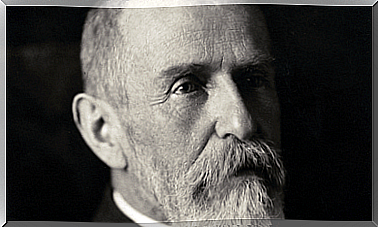How To Deal With Panic Attacks

Facing panic is not easy at all, anyone who suffers from it could say so. However, on the other hand, it is not an impossible task ; what is required is: a lot of patience, a great commitment to future change, time and the help of a professional. The first three factors will mean that, instead of constantly looking for methods to avoid panic, you can look at it head on.
Some keys to face a crisis of anguish
There are extensive developments on this topic. A practical summary could be the following:
- The more nervous you perceive yourself, the more nervous you will get, and your symptoms will increase
- Don’t focus on your own symptoms, focus on possible solutions to adopt
- What is experienced is simply unpleasant, it has no imminent danger. The important thing is that you convince yourself that nothing dangerous can happen. Otherwise, you would be feeding that vicious cycle of negative thoughts.
- Don’t think prematurely about the consequences. A positive thought about the future will help you calm down.
- The main thing is to try to fight fear, avoiding it cannot be an alternative. Consider what is happening to you as a situation to strengthen yourself.
- Fear disappears when confronted. Stay in the situation, your anxiety will start to go down just with the mere exposure. We know it will take a lot of work, but there is no other way to heal.
- Accept all the sensations that you are experiencing and try to control them. Breathe Do not run away.
- As you feel better, make plans for later. Thinking of an activity that you find enjoyable will help you calm down faster.
- As soon as you feel ready to continue the activity you were doing, take your time and resume it without rushing.
Perception about the future
In general, during a panic attack, physiological reactions are so strong that people fear having a heart attack that will lead to death. What does this mean? That beyond fear of the situation that is being experienced, people are afraid of the results that may result from the attack. Herein lies the beginning of the solution: you have to learn to control anticipated negative thoughts.
Contraposition of thoughts
Here is a list of common thoughts in people with panic attacks. In opposition, we show examples of the most recommended and correct ideas to face them:
– “No one should know what happens to me” / “I am not ashamed”
– “Panic is my eternal enemy” / “I can control my panic states”
– “I want to avoid all symptoms” / “I am going to face these symptoms”
– “I must always be alert” / “I will not always remain alert for this”
– “This is a test” / “What happens to me is a practice that will help me in the future”
– “I cannot live in peace if there is no certainty of that there are no risks “/” The uncertainty is tolerable ”
-” This should work now “/” If it doesn’t work now, I’ll keep practicing until it does “
While controlling panic is difficult, you must understand that controlling your thoughts, perspectives, and visions is the first step to achieving it. It is important to know every detail of this situation as much as possible, read, inform yourself, reflect and, of course, request professional assistance when necessary. You already know: removing panic from your life starts with you.









